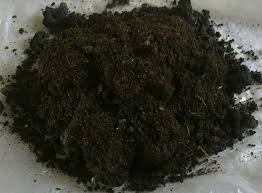
Aug . 07, 2024 14:15 Back to list
Optimal Nitrogen Fertilizer Strategies to Enhance Horse Pasture Growth and Sustainability
Nitrogen Fertilizer for Horse Pasture Enhancing Growth and Sustainability
Horse pastures play a crucial role in providing nutritional forage for horses, contributing not only to their health and performance but also to the overall ecology of farm ecosystems. One of the critical components influencing pasture quality is soil fertility, particularly nitrogen levels. Adequate nitrogen is essential for promoting healthy grass growth, which, in turn, supports better forage for horses. Therefore, understanding the role of nitrogen fertilizer in horse pastures is vital for equestrian professionals and hobbyists alike.
Nitrogen is one of the three primary macronutrients, along with phosphorus and potassium, that are critical for plant growth. It is an essential building block of amino acids, which are the foundation of proteins. In grasses, sufficient nitrogen helps promote leaf area growth, improves photosynthesis, and enhances overall vigor. When nitrogen levels are low, grasses can become stunted and less palatable, leading to reduced forage availability for horses.
Nitrogen Fertilizer for Horse Pasture Enhancing Growth and Sustainability
Choosing the right type of nitrogen fertilizer is essential. There are several types available, including synthetic fertilizers and organic options. Synthetic fertilizers, often in the form of ammonium nitrate or urea, provide a quick release of nitrogen, leading to rapid growth. Organic fertilizers, such as manure or compost, often release nitrogen more slowly and improve soil structure and microbial activity over time. The choice between these options depends on the specific needs of the pasture, soil health, and the management practices of the horse owner.
nitrogen fertilizer for horse pasture

It is also essential to conduct a soil test before applying nitrogen fertilizer. Soil testing provides valuable information about existing nutrient levels, soil pH, and organic matter content. This data helps to tailor fertilization practices to meet the specific needs of the pasture while minimizing environmental impact. Based on the soil test results, horse owners can determine the appropriate type and amount of nitrogen fertilizer needed to achieve optimal growth.
Proper application timing and methods play a crucial role in maximizing the benefits of nitrogen fertilizers. Early spring is typically the best time to fertilize horse pastures, as it coincides with the natural growth cycle of cool-season grasses. Furthermore, splitting the application into multiple smaller doses throughout the growing season can be more effective than a single heavy application. This approach helps maintain more consistent nutrient availability and reduces the risk of nutrient leaching.
While nitrogen is crucial for pasture health, it is also essential to maintain a balanced nutrition approach for horses. Owners should regularly assess pasture quality and consider supplementation with hay or other feeds if grass availability is limited, especially during periods of drought or after heavy grazing.
In summary, nitrogen fertilizer plays a vital role in enhancing horse pasture growth and sustainability. By understanding the importance of nitrogen, choosing the appropriate fertilizer, conducting soil tests, and applying fertilizers judiciously, horse owners can create a thriving pasture that effectively supports their equine companions. Ultimately, well-managed pastures contribute not only to the health of horses but also to the broader ecosystem, driving sustainable practices in equestrian management.
-
10 10 10 Fertilizer Organic—Balanced NPK for All Plants
NewsJul.30,2025
-
Premium 10 10 10 Fertilizer Organic for Balanced Plant Growth
NewsJul.29,2025
-
Premium 10 10 10 Fertilizer Organic for Balanced Plant Growth
NewsJul.29,2025
-
Premium 10 10 10 Fertilizer Organic for Balanced Plant Growth
NewsJul.29,2025
-
50 Pound Bags of 13-13-13 Fertilizer for All Plants – Bulk & Organic Options
NewsJul.28,2025
-
High-Efficiency 15-30-15 Granular Fertilizer for Healthy Crops
NewsJul.28,2025
